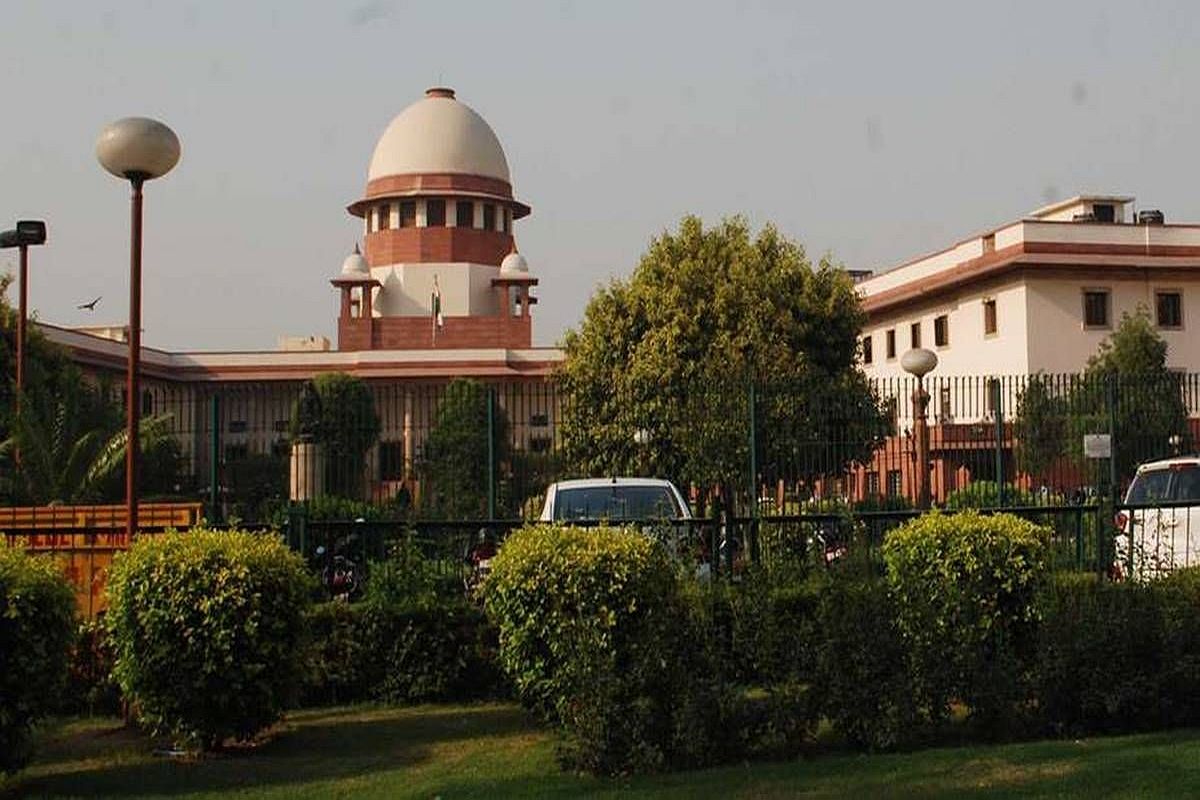Pegasus snooping row: SC adjourns hearing for April 22
The Supreme Court on Friday posted for April 22, 2025 the hearing on a batch of petitions seeking inquiry into the allegations that the government is using Israeli software Pegasus for snooping.
The scheme was introduced in January 2018. Issued in multiple values of Rs 1,000, Rs 10,000, Rs 1 lakh, Rs 10 lakh, and Rs 1 crore, electoral bonds can only be encashed by political parties, which had secured at least 1 per cent of the votes polled in the most recent Lok Sabha or state election.

Supreme Court (Photo: Getty Images)
The Supreme Court refused to grant an interim stay on the electoral bond scheme while seeking response from the Centre and the Election Commission (EC) on a plea seeking stay on the scheme meant for funding political parties.
The top court bench headed by Chief Justice S A Bobde gave two weeks time the centre and EC to file their responses on the plea filed by NGO ‘Association for Democratic Reforms’ for staying the scheme.
Advertisement
Lawyer Prashant Bhushan, appearing for the NGO, alleged that the scheme is a means for channelising unaccounted black money in favour of the ruling party. Bhushan also referred to a document of the RBI while seeking stay of the scheme.
Advertisement
“Why didn’t you come earlier if you had Delhi elections in mind? We are not on merits today. It is only about how much time we should give to the other side for filing their replies,” News18 quoted Justice Bobde telling advocate Prashant Bhushan.
The apex court bench also comprising justices B R Gavai and Surya Kant said,”We will see that. We are listing it after two weeks.”
Senior advocate Rakesh Dwivedi, appearing for the EC, said all these arguments have already been advanced earlier and sought four weeks time to reply to the plea of the NGO against the scheme.
Electoral bonds, which are anonymous, are monetary instruments that citizens or corporate groups can buy from State Bank of India and give to a political party, which is then free to redeem them for money.
The scheme was introduced in January 2018. Issued in multiple values of Rs 1,000, Rs 10,000, Rs 1 lakh, Rs 10 lakh, and Rs 1 crore, electoral bonds can only be encashed by political parties, which had secured at least 1 per cent of the votes polled in the most recent Lok Sabha or state election.
Advertisement